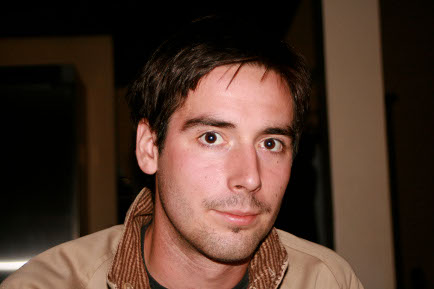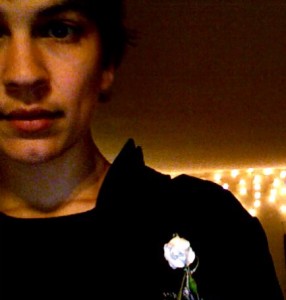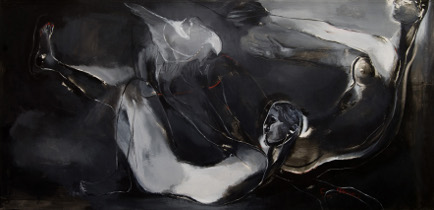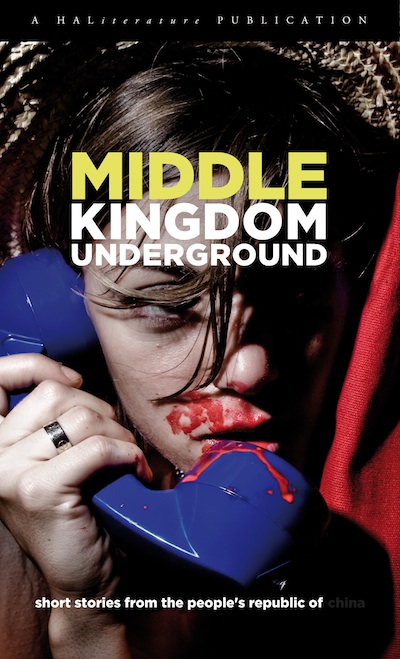
Hunter Braithwaite was born in the Philippines and raised in Germany and America. He studied literature at the College of William and Mary in Virginia. He’s worked as a travel journalist, arts writer, and dishwasher. Past publications include National Geographic, City Weekend, and Time Out Shanghai. He’s currently working on a collection of short fiction.
Phone Calls (from Groupthink)
Sometimes I work backwards to create premonitory dreams. I look for auguries. Clouds moving quickly or the eye contact of strangers. Omens help because they point to reason. Nothing is tougher than unreasonable loss.
The night the police came I might have been dreaming a banging noise. I think of crunching ice with my teeth, bits of broken ice sliding down my face until they melt. Then my teeth bite stones until they begin to break themselves. The noise brings me back to the real world, the one without symbols, and becomes the sound of a gloved knuckle rapping on our oak door. The doorbell rings too. I went downstairs–I remember the feeling of each one. The carpet mashing beneath my weight, and then springing up again. Continue reading…
On Death
“I will spend my life trying to understand the functioning of remembering, which is not the opposite of forgetting, but rather its lining.”—Sans Soleil
“She was so depressed she just walked into the river. Drowned herself right there in the water behind you. You know how bad it must be to convince your body to sink, not float?”
“Yes,” I said, meaning no. “I guess I do.”
Saying you have a lot of deaths in the family is like saying you have a lot of births. But suicides? And how should you remember those who wanted to be forgotten? And when you finally do forget, when their faces are lost to clouds and then just gray, how do you describe what they once were, and what they’ve done since? There are so many types of death—all affect the dead the least. The woman that walked stubbornly into the shallow waters of the Lynnhaven was my great aunt. And this part of the river is shallow. Nothing but reeds and mud for at least fifteen yards. Continue reading…
Motorcycles
We watched her fall. Or rather, the cars in front of us watched her fall; we just watched her. Her stillness held the fall itself. Her body, limp, and the motorcycle, splintered, lay in the intersection of Shore and St. George. Mom in the passenger seat starts crying and I run the red light so we won’t have to watch her die. Because it looks like she’ll probably die. Mom won’t stop crying, because of motorcycles, she says. “So scary” and “you’re never allowed to ride one.” John tried to teach me once. This was when they first married, when he was trying to appear more as a friend than a father. Mom was out west on business as I pushed the little green Honda around an Episcopal church parking lot. Continue reading…





